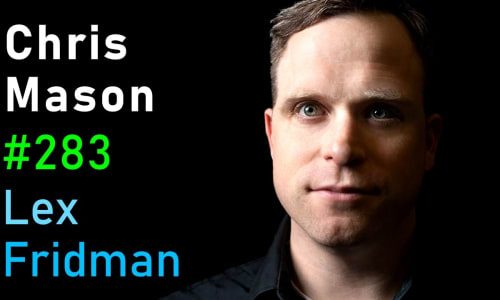See all Lex Fridman transcripts on Youtube

Chris Mason: Space Travel, Colonization, and Long-Term Survival in Space | Lex Fridman Podcast #283
2 hours 55 minutes 4 seconds
🇬🇧 English

Omnivision Solutions Ltd
- Getting Started
- Create Transcript
- Pricing
- FAQs
- Recent Transcriptions
- Roadmap